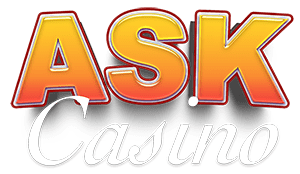Gambling Laws in Idaho
The first thing worth noting is that while there are some forms of land-based gambling available in Idaho (such as bingo halls), most forms of traditional casino gaming such as slots, blackjack and roulette, are not allowed under current law. That means if you want to play those games here, your only option is to do so online. Fortunately, there are plenty of reputable sites where you can do just that!
Regulations Surrounding Online Gambling
When it comes to online gambling, however, things get a bit more complicated. While there aren’t any specific laws prohibiting residents from engaging in this activity, many operators don’t accept players from certain states due to ambiguous legal status. It’s also important to note that all players must be over 21 years old before they can even access these sites – so make sure you meet this requirement before signing up!
Overview of Legal Gambling in Idaho
Idaho is one of the most restrictive states when it comes to legal gambling activities. The state allows only a few forms, including pari-mutuel betting on horse races and pull tabs. All types of online casino gaming are prohibited by law. There has been some discussion about legalizing certain forms of online gambling but so far no action has been taken.
The state does not allow any form of traditional casino games or sports betting at land-based locations or over the internet. Any attempt to operate an illegal gambling business is considered a felony which could result in jail time and heavy fines for those found guilty. In addition, there are strict laws against running offshore sites that offer services to residents of Idaho.
Gambling is regulated by the State Lottery Commission and local authorities who work together to ensure compliance with all applicable regulations. Despite its restrictions, Idaho offers plenty of opportunities for people looking for entertainment and fun through various legal means such as bingo halls, charitable events, amusement parks and more. With these limited options, however, it’s important to stay within the limits set out by the government if you want to enjoy gambling without risking criminal repercussions. That leads us into our next section – a look at the historical landscape of gambling in the state.
History of Gambling in Idaho
Idaho has a long history with gambling, dating back to the 1800s. In the early days, there were unregulated and illegal forms of gaming such as horse racing and dice games. As time progressed, more organized types of betting began to emerge, including lotteries and bingo halls. The state was one of the first states to legalize pari-mutuel wagering on horse races in 1945 but did not start allowing other forms of legalized gambling until 1988 when it passed laws allowing charitable bingo operations.
Since then, casino-style gaming has been steadily increasing throughout the state with tribal casinos now being allowed to offer slots, video poker machines and table games like blackjack and roulette. There are currently eight tribal casinos located across Idaho offering these games for real money play. Additionally, off-track betting facilities have also been opened up around the state which allow residents to place bets on thoroughbred and harness races from all over North America.
The most recent development in Idaho’s gambling landscape is its move towards online gambling. While this still remains largely unregulated by the state government, many offshore sites continue to operate within Idaho’s borders under current laws. With more states beginning to regulate their own online gambling markets though, we could soon see major changes coming down the line regarding how Idaho chooses to approach internet gambling moving forward.
Definition of an Online Casino
An online casino is a virtual gambling establishment that allows players to wager and play on games of chance over the internet. Players can access these casinos from any device with an internet connection, including PC or Mac computers, laptops, tablets and smartphones.
Online casinos typically offer many different types of gaming options such as slots, blackjack, roulette, baccarat, craps, video poker and others. These games are usually provided by third-party software providers such as Microgaming or NetEnt. Many sites also feature live dealers who facilitate gameplay in real time via webcams.
At most online casinos you will find bonuses and promotions available for new players which can be used to increase your bankroll when playing real money games. With so much variety at your fingertips it’s easy to see why online gambling has become increasingly popular worldwide. To get started all you need to do is create an account and start exploring the wide range of games available! From here we move onto exploring the current status of online gambling in Idaho.
Current Status of Online Gambling in Idaho
Idaho is a state with no legal online gambling. Casino, poker and lottery games are not available for residents to play legally on the Internet. Furthermore, there has yet to be any legislation proposed by state legislators that would regulate or legalize such activities. In addition, federal laws prevent most forms of online gaming from taking place within the state’s borders.
Sports Betting
Idaho does not allow its citizens to engage in sports betting either online or offline. There are several tribal casinos located throughout the state that offer bingo-style games but these do not include wagering on sporting events. The only exception is pari-mutuel horse racing which can take place at licensed tracks.
Lottery Games
The official Idaho State Lottery offers scratch cards and drawing tickets to people over 18 years of age who purchase them at local vendors or via subscription services. However, as it stands now this organization does not have an online presence like many other states have implemented. As a result, players cannot buy lottery tickets through the internet nor participate in drawings that may be held outside of the state borders.
Conclusion
Despite having some legalized forms of gambling present within its boundaries, Idaho currently does not provide access to casino style gaming for its citizens via the internet. This leaves locals without much choice when it comes to engaging in their favorite pastime from home computers or mobile devices. Fortunately, authorities in Idaho are beginning to look into responsible gambling initiatives which could benefit those living within the state if they become enacted soon enough.
Responsible Gambling Initiatives By Idaho Authorities
The Idaho Gaming Commission is the primary regulator of all gambling activities in the state. It has taken several initiatives to ensure responsible gaming practices, such as:
- Implementing a Responsible Gambling Code of Conduct for licensees
- Promoting public awareness about problem gambling
- Making sure that there are no underage gamblers allowed in any licensed establishments
In order to maintain these standards, the commission requires each licensee to provide training and education programs on responsible gambling. These programs must include topics like self-exclusion options, identifying signs of compulsive behavior, and providing assistance services for those affected by problem gambling. The commission also encourages partnerships between industry stakeholders and local support organizations dedicated to helping people with addiction issues. Furthermore, they have established a hotline which can be used to report suspicious or illegal activity related to problem gambling.
Idaho authorities understand that although most people gamble responsibly, some may not be aware of their own risk factors when it comes to playing casino games or participating in sports betting. To this end, the commission ensures that all players are able to access information about available resources should they need help controlling their behavior while engaging in online gaming activities. They also require operators to make sure customers have complete control over their accounts through account limits and other safety measures designed to prevent excessive losses or fraud. By taking these steps, Idaho’s governing body demonstrates its commitment to protecting its citizens from potential risks associated with online gaming.
These efforts demonstrate how seriously the state takes responsible gambling initiatives within its borders. As well as ensuring individual gambler’s safety, enforcing regulations around age restrictions is just another way Idaho keeps its residents safe while enjoying legal online gaming opportunities in the state.
Age Restrictions for Gambling in the State
The legal gambling age in Idaho is 18, which applies to both land-based and online casinos. All players must be at least 18 years of age or older before they can access any type of real money casino game within the state’s borders. Casinos are required to verify a player’s identity prior to allowing them to make deposits or wagers. In addition, all licensed operators must prominently display their minimum age requirements on their websites and/or apps.
Players who are caught attempting to gamble underage will face serious consequences if found guilty. This includes being barred from participating in further gaming activities and potentially facing criminal charges under local laws depending on the situation. Furthermore, those who knowingly allow minors to participate in gambling activities may also be subject to penalties.
To avoid potential issues with law enforcement agencies, we recommend that all players ensure they meet the minimum age requirement set out by the state’s authorities before playing online casino games for real money in Idaho. A transition sentence into the subsequent section about licensing requirements and regulatory bodies could be: Once these restrictions have been met, it is important for players to familiarize themselves with the licensing requirements and regulatory bodies managing iGaming operations across Idaho.
Licensing Requirements and Regulatory Bodies
In the US, Idaho state gambling laws are regulated by both local and federal governments. The state of Idaho has established specific licensing requirements for operators who wish to run online casino gaming operations within its borders. In addition, there are several regulatory bodies that oversee these activities as well as monitor compliance with applicable state laws.
The first step in obtaining a license is submitting an application through either the State Gaming Commission or the Department of Business & Economic Development (DBED). Applicants must provide information regarding their financial resources, business plans and intentions, legal history, etc., before being approved by the respective agency. Once approval is granted, operators must then receive approval from either the State Lottery Board or Federal Trade Commission (FTC).
| Regulator | Responsibilities | Contact Info |
|---|---|---|
| State Gaming Commission | Issuing licenses to operators; monitoring compliance with regulations | 888-843-4800 |
| Department of Business & Economic Development(DBED) | Reviewing applications; issuing licenses to applicants meeting criteria set forth by law | 208-332-3570 |
| State Lottery Board/Federal Trade Commission (FTC) | Ensuring games offered by licensed casinos are fair and honest; enforcing consumer protection rules and any other related legislation determined necessary for operability within Idaho’s jurisdiction when it comes to online casino gambling services. | 1-888-382-1222 / 202 326 2211 respectively |
Once all required documentation has been provided and approvals have been granted, operators may begin offering their services subject to taxation and fees associated with such activity as prescribed under Idaho Law.
Taxation and Fees Associated with Gambling Activity
In Idaho, gambling activity is subject to the state’s taxation laws. The taxes imposed on gaming activities will vary depending on the type of game being played and its associated revenue. For example, a lottery game would be subject to higher taxes than a commercial casino or poker room. Additionally, each establishment must pay an annual fee for their license renewal as well as any additional fees that may apply during the year.
Idaho also has specific rules regarding how much can be charged in fees from players participating in online casinos within the state’s borders. All deposits made into player accounts at these sites are required to have a minimum deposit amount before they can play real money games. These fees are regulated by the Gaming Commission and typically range between $10-$25 USD per transaction, depending on the site.
When it comes to withdrawing winnings after playing real money games, there may be both withdrawal limits and processing fees applicable to every payout request. Players should check with their chosen online casino beforehand so they know what kind of costs they might incur when requesting a withdrawal. Understanding all of this information ahead of time can help them save both time and money while playing online in Idaho. Withdrawal times may also differ according to the banking method selected by the customer, so again reading up on this prior is key to having a smooth experience overall. Now let’s move onto penalties for illegal gambling activity in Idaho…
Penalties for Illegal Gambling Activity
In Idaho, engaging in illegal gambling activities can result in serious consequences. Offenders face both civil and criminal penalties if found guilty of the charges. The state has strict laws prohibiting all forms of online gaming within its borders, including poker, sports betting, casino games and lotteries.
Civil Penalties
Those who are caught participating in illegal gambling activities may have to pay a fine up to $1,000 per offense or be held liable for any losses incurred by other players due to their actions. Additionally, those convicted could face jail time of up to one year along with possible fines.
Criminal Charges
The most severe punishment for taking part in illegal gambling is being charged with a felony crime that carries a sentence of up to five years imprisonment as well as hefty fines. This includes anyone directly involved in running an unlicensed gambling business or website, making bets on behalf of others without proper licensing or profiting from unlawful gaming operations.
Violators of Idaho’s anti-gambling laws will also have their illegally obtained assets confiscated, which can include cash winnings and any property purchased using proceeds from the activity. In some cases, individuals may even be required to make restitution payments if they have harmed another person through their involvement in the illicit operation. With these harsh punishments in place, it’s clear why participation in any form of unregulated online gambling is not recommended in this state. By understanding the risks associated with violating these laws citizens can protect themselves from potential legal repercussions while ensuring safe entertainment experiences when visiting licensed establishments.
Charitable Organizations Impacted by Idaho Online Casino Gambling Laws
Despite the fact that there are not many online casino gambling options available in Idaho, charitable organizations still feel the impact of these laws. Charities offering bingo games and other forms of gambling must adhere to strict guidelines set forth by both state and federal law. This means that regulations, fundraising goals, and game rules may differ from those found in commercial casinos.
State Regulations for Charitable Organizations
In order to be eligible for a bingo license or any type of gaming permit issued in Idaho, an organization must meet certain criteria. All charities wishing to provide any form of gaming activities must have been in existence for at least three years prior to submitting their application. Furthermore, applicants must demonstrate compliance with all applicable local and state laws as well as provide proof that they are organized exclusively for religious, educational, recreational or charitable purposes.
Organizations looking to conduct raffles should be aware that no more than two such events can take place within a calendar year while prize amounts cannot exceed $5,000 per event. In addition, only qualified non-profit organizations registered with the secretary of state’s office can apply for approval from the Attorney General’s Office under Title 11 Chapter 22 of the State Code of Statutes.
Although it is difficult for charities to run legitimate gaming operations due to restrictions placed upon them by various agencies and entities, it is possible if done correctly according to the rules outlined above. With diligence and cooperation from all involved parties, these types of activities can help raise funds necessary for adequate operation of any charity organization operating in this part of America.
Frequently Asked Questions
What Are The Tax Implications Of Online Gambling In Idaho?
Tax implications of online gambling in Idaho are complex and should be taken into careful consideration before engaging in any type of wagering. It’s important to understand the legal framework that exists at both the local and federal levels, as well as how taxes may apply depending on your winnings or losses. Here are some key points to consider when it comes to taxation related to online gambling:
- Winnings from online sports betting must be reported on a US 1040 form each year.
- Any foreign-based casino winnings are subject to a 30% withholding tax rate.
- Income generated from lotteries is taxable in Idaho according to state law.
- All other gaming income is taxed based on Federal Tax rates for individuals.
When it comes down to understanding exactly what you owe, there are several factors that need to be considered such as the amount won, where it was earned, and whether or not you have already paid taxes on those winnings elsewhere. Gambling establishments also have an obligation to report large wins over $1,200 (for slot machines) and all table game wins over $600 – this serves as another way for them to track money coming in and out of their businesses while allowing players who do win big prizes the opportunity stay compliant with IRS regulations.
Players who fail to pay taxes on their gambling profits can face stiff penalties including criminal charges if they don’t comply with existing laws; however, through proper education and guidance most people will find themselves able to remain within the bounds of legality without issue. There’s no one size fits all solution here but by consulting professional financial advisors and staying up-to-date on new legislation governing these activities gamblers can ensure they remain responsible citizens and protect themselves from potential repercussions associated with unpaid taxes owed due to any past activity related to online gambling in Idaho.
Are There Any Special Requirements For A License To Operate An Online Casino In Idaho?
Are you curious about the process for obtaining a license to operate an online casino in Idaho? Requirements for such a venture can be complex, so it’s important to know what is involved. This article will provide guidance on the special requirements and regulations that need to be met before you apply for permission to run an online casino in this state.
First of all, it’s essential to note that any form of gambling – including online casinos – are regulated by the State of Idaho Gaming Commission (IGC). To get your application approved, there are many steps that must be taken. You must have experience in operating gaming enterprises or demonstrate knowledge related to running an internet-based casino; submit financial statements showing proof of sufficient funds; and prove that you’re legally able to open shop within the state boundaries. Additionally, if you plan on serving alcoholic beverages at your venue, then alcohol permits may also have to be obtained from local authorities.
On top of these basic requirements, licensing fees will need to be paid annually as well as taxes imposed on any games taking place in your establishment. Further paperwork relating to security measures and customer protection policies might also be requested by regulatory bodies prior to granting permission for operation.
It’s clear that there is much more than meets the eye when it comes to getting licensed for an online casino business in Idaho. With research, preparation and understanding of relevant laws and regulations, however, applicants should find themselves on track towards being granted a permit successfully.
Are There Any Exceptions To The Minimum Age Requirement For Gambling In The State?
Gambling has long been a popular activity for Americans, and with the rise of online casinos, it can now be done from the comfort of home. But with any form of gambling comes certain restrictions – especially when it comes to the legal age requirement. So what are the exceptions to this rule in Idaho?
In Idaho, anyone over 18 years old is allowed to gamble at land-based or online casinos as part of their state laws. However, there are some exceptions that allow younger players to participate legally. The first exception applies to those aged 16 or 17 who play bingo. This includes bingo played both in person and online. The second exception allows minors aged 14 or 15 to engage in pari-mutuel betting on horse races if they have written permission from a parent or guardian.
Other Exceptions
Aside from these two exemptions, other forms of gambling activities remain strictly off-limits for those under 18 years of age in Idaho. As such, operators should be sure they’re adhering closely to regulations regarding minimum age requirements before allowing customers access to any real money gaming options. Additionally, operators must always ensure that all patrons verify their identity using standard KYC protocol, so as not to inadvertently violate any applicable laws by letting underage gamblers gain access without proper identification checks.
If you’re looking for an enjoyable way to pass the time while staying within your local jurisdiction’s guidelines, then look no further than Idaho’s online casino industry! With its safe and secure environment, plus plenty of exciting games available across different platforms, it promises something special for everyone who chooses try out its offerings.
Are There Any Restrictions On The Types Of Gambling Activities That Are Allowed In Idaho?
In the United States, gambling regulations vary from state to state. Idaho is no exception, with its own set of specific restrictions on what types of gambling activities are allowed within the state.
Gambling in Idaho is strictly regulated by both the State’s Constitution and various laws that have been enacted since then. Here are five important things you should know about these restrictions:
- Casino games such as slots, blackjack, roulette and poker are prohibited outside of Native American reservations.
- Sports betting is illegal everywhere in Idaho including tribal land.
- Bingo is legal but must be conducted under strict guidelines as established by the Gaming Commission and approved bingo operators.
- Pari-mutuel wagering on horse racing is permitted at certain racetracks throughout the state with some exceptions for online wagers and off-track betting sites.
- Social gaming (in which players do not receive prizes or money) may or may not be considered legal depending upon how it’s organized or advertised and who participates in it.
These regulations can make it difficult for players to determine exactly what forms of gambling they can participate in legally. While there are several Tribal Casinos located within the borders of Idaho, all other forms of gambling activity remain severely restricted across most areas of the state – even when operated through offshore websites or apps. For this reason, it’s important to understand your local laws before engaging in any kind of real-money wager anywhere inside Idaho’s borders – whether live or online – so that you don’t end up unintentionally breaking them!
Are There Any Specific Initiatives Or Programs In Place To Promote Responsible Gambling In Idaho?
In the state of Idaho, responsible gambling initiatives and programs are in place to promote safe and informed gaming. From interactive educational tools to self-exclusion policies, there are a variety of resources available for players who want to ensure they’re betting responsibly.
Here’s an overview of some key initiatives that have been put into action:
- The Idaho Council on Problem Gambling provides information about problem gambling as well as access to counseling services statewide.
- Players can sign up for voluntary exclusion lists which will prevent them from accessing any casino or sportsbook in the state.
- Interactive education programs are available online, such as the free program provided by MyWinningEdgeIdaho.org which helps individuals build skills for making better decisions when it comes to wagering money online.
From Self-Exclusion Policies To Educational Programs
The goal of these initiatives is to make sure everyone has access to the necessary resources if they need help with their gambling habits. Self-exclusion policies allow those who feel like they might be developing a problem with gambling to step back without having direct contact with any casinos or sportsbooks in Idaho. Meanwhile, interactive educational programs provide users with practical tips and strategies for managing their bankrolls more effectively and learning how to recognize signs of problem gambling before it becomes serious.
For people looking for extra support, there are several counselors across the state who specialize in treating those dealing with issues related to excessive betting. Additionally, organizations like Gamblers Anonymous offer group meetings that serve as positive outlets where individuals struggling with compulsive behaviors can share stories and find strength through solidarity. All this goes towards ensuring that gamblers within Idaho’s borders remain safe while enjoying their favorite activities legally and responsibly.
Conclusion
Idaho has some of the strictest gambling laws and regulations in the country. The state requires that anyone who wishes to operate an online casino must obtain a valid license, pay taxes on any profits earned, and adhere to all minimum age requirements for gambling. Those looking to gamble must also be aware of which activities are allowed or prohibited within the state, as certain forms of betting may not be legal. Finally, Idaho offers various initiatives and programs designed to promote responsible gambling practices among its residents.
Tax Implications
It’s important for those considering engaging in online gambling in Idaho to understand their tax responsibilities. All profits from wagering activities must be reported and taxed accordingly. Failure to do so could lead to serious financial penalties or even criminal charges.
Responsible Gambling
Finally, it’s essential for players in Idaho to stay mindful of how often they’re playing and how much money they’re spending while doing so. To support this effort, there are numerous resources available that provide tips, advice, and financial assistance when needed – allowing individuals to enjoy gaming responsibly without risking their well-being or financial stability.
Related Pages
Trevor Blacksmith, Chief Editor at Ask-casino.com, has dedicated over 15 years to the online casino industry, ensuring readers receive accurate and current information. Based in New York, Trevor's meticulous approach and extensive experience make him a trusted voice in the realm of digital gambling, upholding the highest standards of journalistic integrity.
James Reynolds Johnson is a seasoned expert in the world of online casinos. With over 10 years of experience in the industry, James has a wealth of knowledge about the latest casino games, trends, and technologies. He has worked with some of the top online casinos in the world, providing expert analysis and advice on everything from game selection to payment methods. James is passionate about helping players find the best online casinos that offer fair games, excellent customer support, and generous bonuses. When he's not writing or researching, James enjoys playing blackjack and poker.




